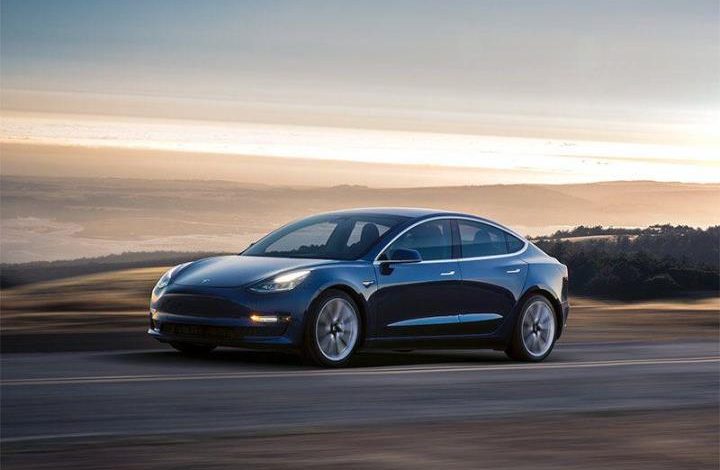Gasoline Efficiency Across Different Vehicle Types

Gasoline Efficiency Across Different Vehicle Types: A Comprehensive Guide
Introduction
When it comes to choosing a vehicle, one of the top considerations is fuel efficiency. With rising gasoline prices and growing concerns about the environment, finding a vehicle that maximizes fuel economy has become more important than ever. In this article, we will explore how gasoline efficiency varies across different vehicle types, providing you with valuable insights to help you make an informed decision.
Factors Affecting Gasoline Efficiency
1. Vehicle Size and Weight
The size and weight of a vehicle play a significant role in determining its gasoline efficiency. Generally, smaller and lighter vehicles tend to have better fuel economy compared to larger ones. Compact cars and hybrids are often more fuel-efficient, making them an excellent choice for city dwellers looking to minimize their carbon footprint.
2. Engine Type
The type of engine in a vehicle can greatly influence its gasoline efficiency. Hybrid vehicles, which combine an electric motor with a gasoline engine, are known for their impressive fuel economy. They optimize energy usage by switching between the electric motor and the gasoline engine, resulting in reduced fuel consumption. On the other hand, vehicles with a regular internal combustion engine may have varied fuel efficiency depending on factors such as their design, size, and technology used.
3. Aerodynamics
The aerodynamic design of a vehicle also affects its fuel efficiency. Automobiles with sleek, streamlined profiles experience less air resistance and, as a result, require less fuel to maintain speed. This is why many modern car models come with various aerodynamic features like active shutters or spoilers, aimed at reducing drag and improving efficiency.
Gasoline Efficiency by Vehicle Type
1. Sedans
Sedans are known for their fuel-efficient nature, especially in the compact and midsize segments. Their streamlined designs and lighter overall weight contribute to better fuel economy. Additionally, advancements in engine technology, such as turbocharging and direct injection, have further improved the gasoline efficiency of sedans.
2. SUVs and Crossovers
SUVs and crossovers generally have lower fuel efficiency compared to compact cars and sedans due to their larger size and heavier weight. However, many automakers now offer hybrid or plug-in hybrid options for SUVs, blending fuel efficiency with the desired utility and power of these vehicles.
3. Hatchbacks
Hatchbacks are often considered one of the most fuel-efficient vehicle types. Their compact size and relatively low weight make them an excellent choice for those prioritizing gasoline efficiency. Additionally, hatchbacks offer practicality with their versatile cargo space, making them an ideal option for urban dwellers.
Frequently Asked Questions (FAQs)
Q: Are electric vehicles more fuel-efficient than gasoline-powered vehicles?
Yes, electric vehicles (EVs) are typically more fuel-efficient than gasoline-powered vehicles. EVs use electricity stored in their batteries to power an electric motor, resulting in zero direct emissions and higher energy efficiency. However, it is essential to consider charging infrastructure availability and range limitations when considering an electric vehicle.
Q: Can driving habits impact my vehicle’s gasoline efficiency?
Yes, driving habits can significantly influence gasoline efficiency. Practices like aggressive acceleration and braking, idling for prolonged periods, and speeding can all negatively impact fuel economy. By adopting more fuel-efficient driving techniques, such as smooth acceleration, maintaining a steady speed, and reducing unnecessary idling, you can enhance your vehicle’s gasoline efficiency.
Q: Do hybrid vehicles require special maintenance for optimal fuel efficiency?
Hybrid vehicles generally require similar maintenance as regular gasoline-powered vehicles. However, it is essential to follow the manufacturer’s recommended maintenance schedule, including battery care, to ensure optimal performance and fuel efficiency. Regularly replacing air filters, spark plugs, and engine oil, as well as keeping tires properly inflated, can all help maintain good gasoline efficiency in hybrid vehicles.
Conclusion
When it comes to gasoline efficiency across different vehicle types, there are several factors at play. Vehicle size, engine type, and aerodynamics all contribute to a vehicle’s fuel economy. Understanding these dynamics can help you make a more informed decision when considering the most fuel-efficient option for your needs. Whether you choose a sedan, SUV, hatchback, or even an electric vehicle, prioritizing gasoline efficiency is not just beneficial for your wallet but also for the environment.



